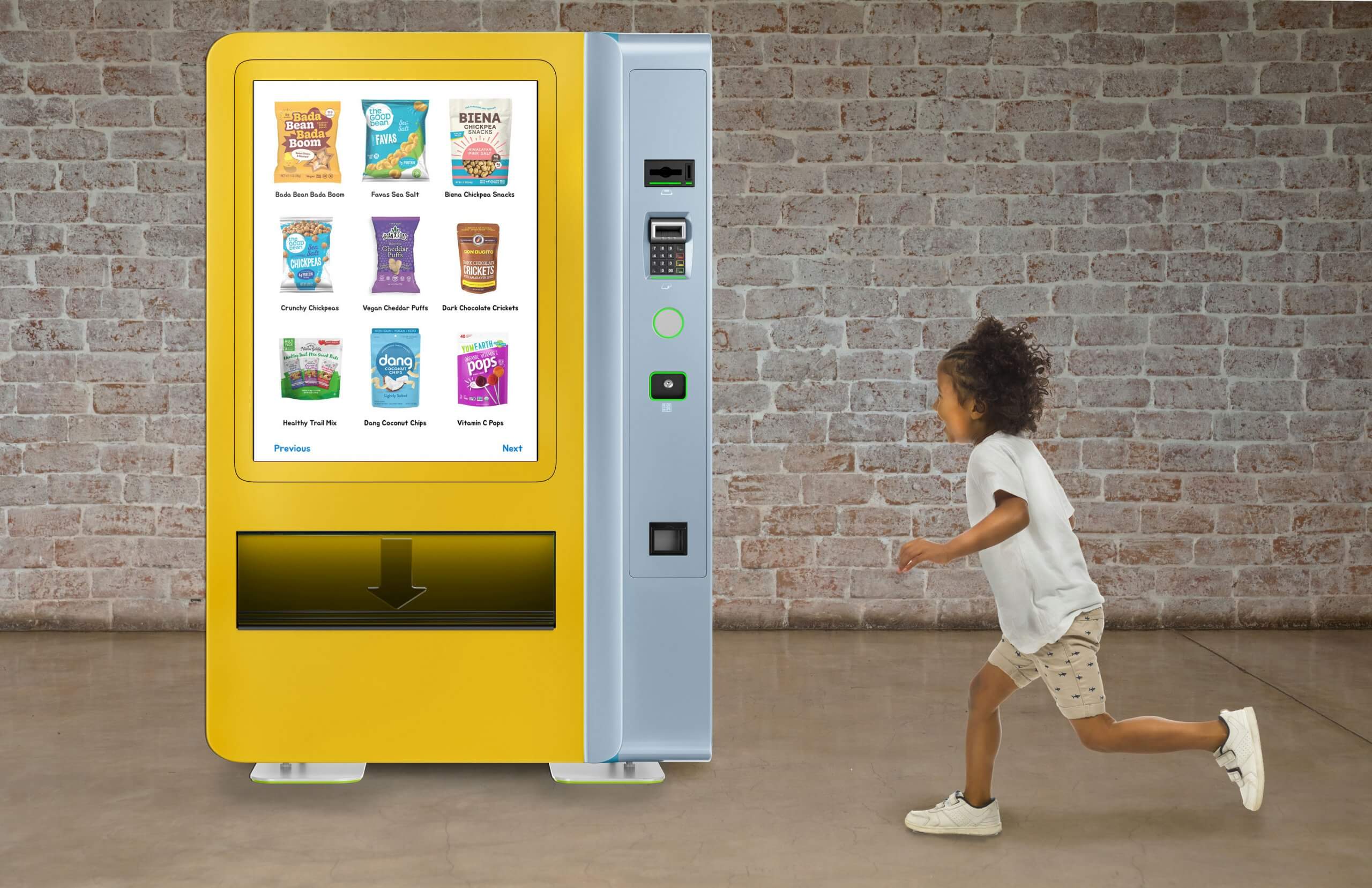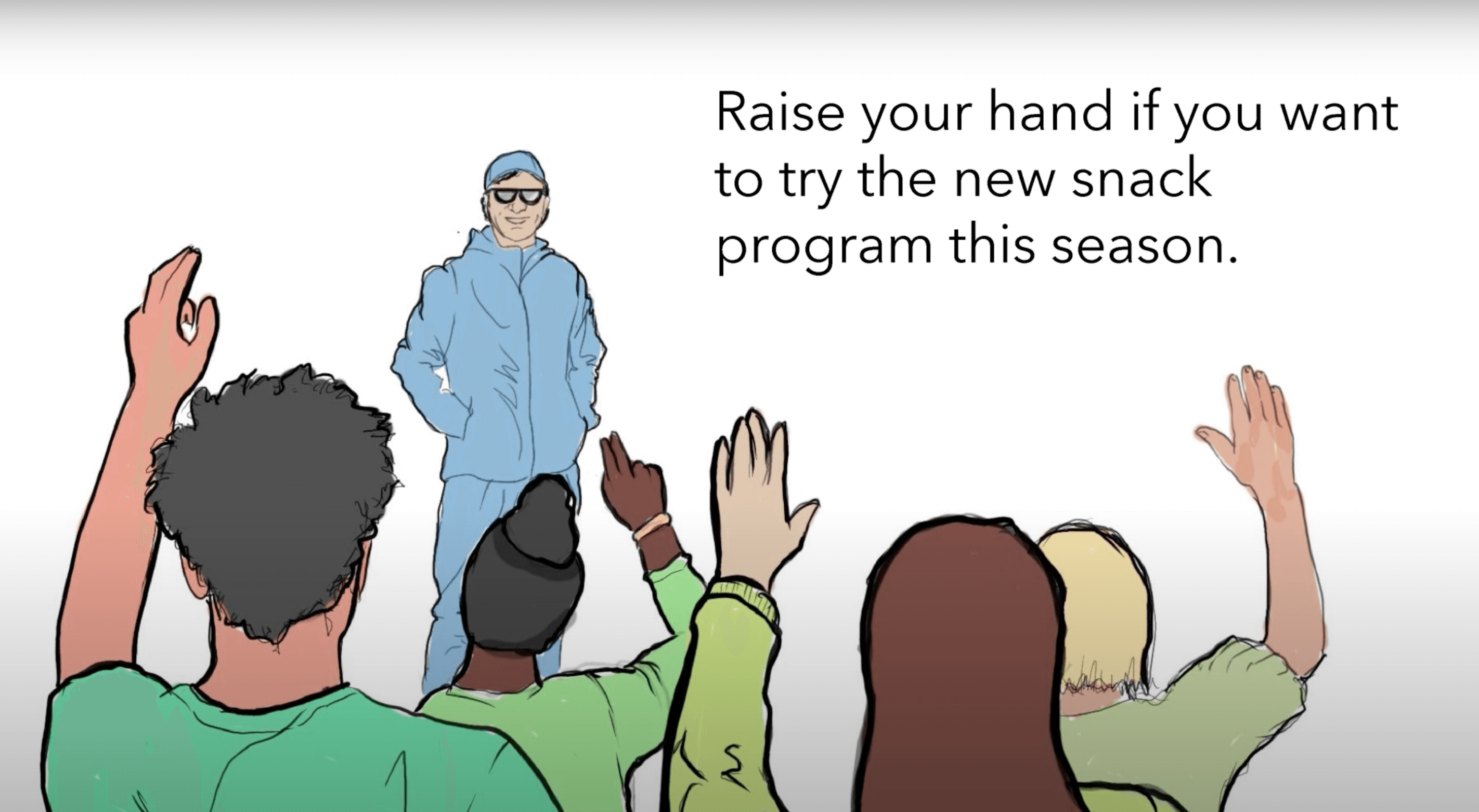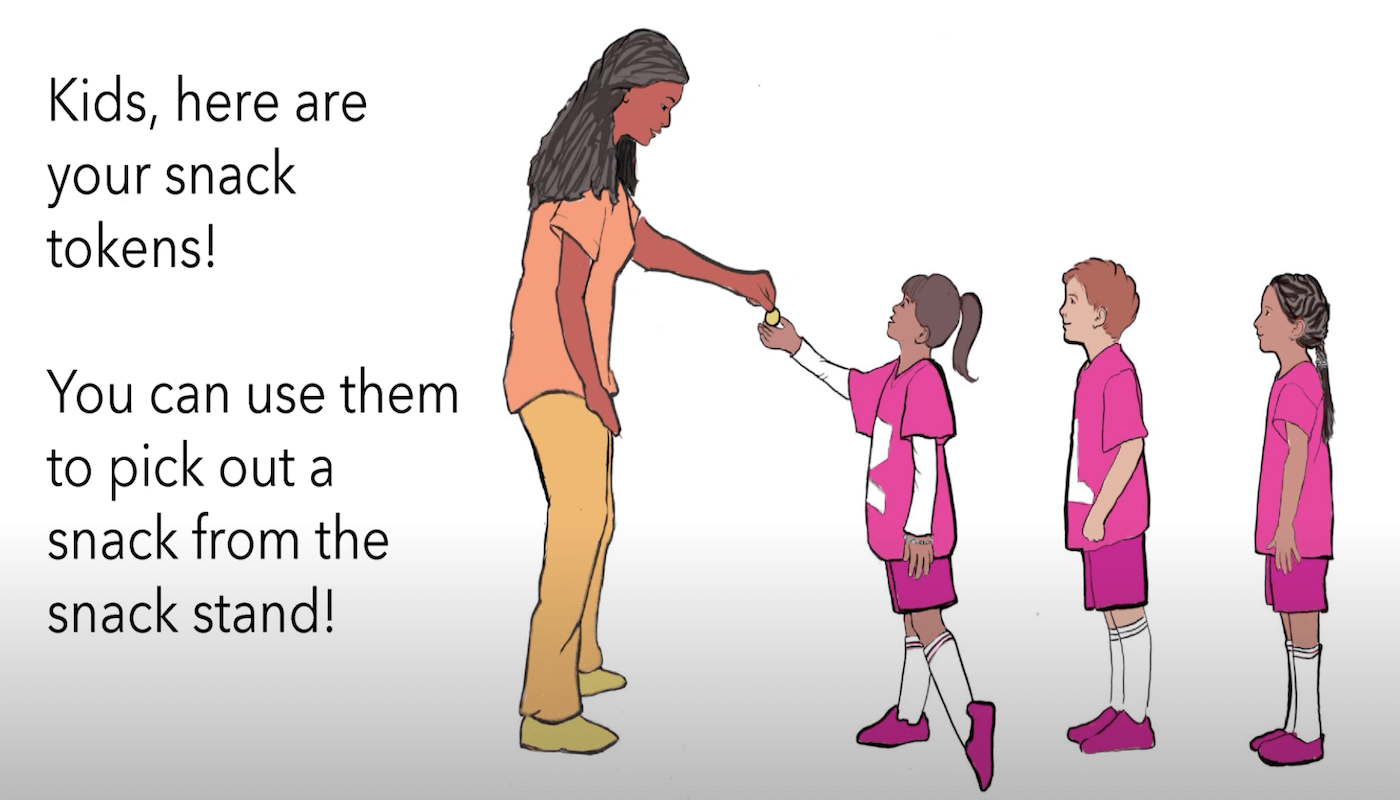Using Behavioral Science to Encourage Sustainable Food Consumption
By Stephanie Hlywak
February 15, 2024

Snack duty for parents of young athletes who participate in youth sports is a time-honored tradition—and a bit of a hassle. Across the country, each week parents load up juice boxes, nut-free cookies, clementines, string cheese, and more into the trunks of their cars on game day. That is—if they remember it’s their turn. Plus there are the related issues of excessive packaging from individually wrapped snacks, low nutritional value, and the schlepping and scheduling involved with the ordeal.
Building on her role as academic advisor to Food for Climate League (FCL)—an Evanston-based non-profit organization that integrates human-centered design, behavioral science, and communication strategies to develop evidence-based approaches for climate-sustainable food production and consumption practices—Associate Professor Ruth Schmidt partnered with the organization to design a semester-long challenge: to develop compelling, behaviorally-designed approaches to increasing bean, legume, and pulse consumption by combining insight into user needs and perceptions, findings from behavioral science, and systems-level strategies.
Over the course of 14 weeks, student teams identified motivators and de-motivators for healthy food consumption, explored how system forces combined to impact target populations’ perceptions and behaviors, and tested their ideas to build confidence in potential solutions. In particular, FCL challenged the students to devise ways to a) encourage bean-based eating and b) activate athletes as influencers.
Student teams applied a behavioral design approach to understand how design can shape or be used to influence human behavior and developed solutions that were bean-forward within that behavioral context.
Behavioral Design Elements
Using behavioral design principles, students determined what features would appeal to parents and youth athletes.
- Opting in as a group establishes a new social norm.
- The snack stand is endorsed by the coach, seen as an authority figure.
- Branding and narrative of the service appeals to parents.
- The snack stand is framed in a way that appeals to parents and activates their caregiver identity.
- Parents make this choice while in a rational state of mind.
Seeing Opportunity in Snack Duty
ID students Elizabeth Graff (MDes 2024), Jie An (MDes 2023), and Ran Konaka (MDes + MBA 2023) saw in the ritual of snack duty an opportunity to transform snack purchasing behavior at youth sports events and promote healthier food choices. Research indicated that “delicious” often trumped “healthy” or “eco-friendly” when parents chose snacks for team sports. If presented with the opportunity to provide their children’s teams with sustainable, nutritious snacks for young athletes, would this change parental behavior?
Their proposal: JoyBite Snack Stand, a kiosk at youth sports venues, offering tasty, environmentally-conscious bean snacks. These kiosks simplify the snack purchasing process, potentially changing parental priorities from mere responsibility to thoughtful nourishment. At the same time, by leveraging behavioral science theory, the kiosk aims to nudge parents towards better choices in the presence of their children, promoting climate-smart, plant-based eating as the new standard.

Coach-initiated conversations allow for parents to opt in under at the invitation of a figure of authority.
Beans: A Powerhouse of Nutrition and a Champion of Sustainability
Cutting out the hassle of remembering snack duty and hauling food to the game is one thing; making sure the food is climate-friendly is another.
The students settled on bean-based snacks to fill their kiosks for a number of reasons. Beans require less water and land to grow and emit significantly fewer greenhouse gasses compared to animal proteins. Research indicates that a nationwide shift from meat to beans could achieve an up to 74 percent reduction of carbon emissions. And though adults may be unfamiliar with bean-based snacks, youth athletes are at a stage when their eating habits are still forming, and they’re learning to make choices that will carry into adulthood.
Moreover, the kiosks serve as educational touchpoints, highlighting the environmental benefits of choosing beans over meat, thereby fostering more awareness of eco-conscious choices.
Targeting youth athletes is a smart business move, too. According to the National Council of Youth Sports, about 60 million children and teens ages 6 to 18 participate in organized sports each year. In 2020, 76.1 percent of kids ages 6 to 12 and 73.4 percent of kids ages 13 to 17 played a sport.
Instilling healthy eating habits in conjunction with already well-understood messages about the benefits of physical activity can normalize pro-social and environmentally friendly behaviors that can influence their peers and families. Moreover, the sports environment is conducive to promoting team spirit and collective responsibility, making it an excellent platform for introducing planet-friendly dietary choices.
Snacktime Made Healthy
The kiosks serve as a practical solution to the challenge of providing nutritious snacks for children’s sports events and remove the burden of snack preparation from parents, allowing them to focus on supporting their children’s activities.
Using a subscription-based model that provides teams or individuals with tokens or tickets, JoyBite fosters a sense of community, choice, and commitment to healthier eating practices. The option for single-use purchases also caters to occasional visitors and siblings, broadening the reach of the healthy snack options.

The convenience of the service, combined with its environmental and health benefits, has the potential to shift long-term consumption habits towards more sustainable choices.The kiosk also reaffirms behavioral research that suggests that individuals make better choices in the presence of children, leveraging the innate desire to provide the best for the next generation. By situating the kiosks in settings where children are both present and the focus of attention, positive decision-making can be as catching as team spirit.
Keeping Score
Even though youth sports often end in participation trophies for everyone, this venture succeeds or fails based on its adoption by the community. The students plan to measure the idea’s success by tracking the number of subscriptions and single-use transactions, monitoring the frequency of repeat purchases by subscribers and non-subscribers alike, and assessing the nutritional intake of consumers through surveys and consumption patterns. Moreover, they will calculate the reduction in carbon footprint through the consumption of plant-based snacks instead of traditional options to measure their contribution to climate change mitigation.
The JoyBite kiosk project has both immediate and expansive potential with significant scaling. It is more than a vending machine, the students say; it’s a tool for change, embodying the potential for a healthier, more sustainable future—one snack at a time.